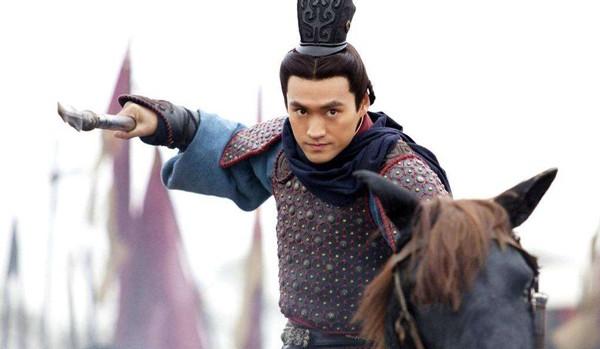The political struggles in ancient China were so brutal that it was generally difficult for the deposed crown princes to die well, and even if they survived, they and their descendants would certainly be away from the troubles of the political arena. However, in the Eastern Han Dynasty, there was such a crown prince, although he was unjustly deposed, but after more than twenty years, he ushered in the opportunity to turn around, and his sons, grandsons, and great-grandchildren all became emperors.
The matter has to start with the third emperor of the Eastern Han Dynasty, Emperor Zhangdi of Han. Although Emperor Zhang of Han had seven sons, all of them were sons. However, due to Emperor Zhang's adoption of Empress Ma (Ma Yuan's daughter), Liu Qing, the third son born to Song Guiren, was made crown prince. It turned out that Song Guiren's aunt was Empress Ma's maternal grandmother. Therefore, Empress Ma put the two Sisters of Song Guiren into the palace, personally trained them, and then sent them to the palace of Emperor Zhang of Han.

Song Guiren was very favored and gave birth to Liu Qing in 78. Song Guiren was very sensible, "offering to changle palace, carrying food", so Empress Ma was very distressed about her, but this caused the dissatisfaction of Empress Dou! Dou was born into a famous family, was Dou Rong's great-granddaughter, and her mother was Princess Xiangyang, so she conspired with her mother to frame Song Guiren. Since the Western Han Dynasty, the emperor has always been more disgusted with witchcraft, and Empress Dou has framed the Song nobles for engaging in witchcraft and "destroying them day and night".
In the long run, Emperor Zhang of Han began to alienate the mother and son of the Song nobles. In 82, Empress Dou again framed The Song Guiren, and was confirmed by the eunuch Cai Lun, so Emperor Zhang of Han ordered the deposing of the crown prince Liu Qing and the appointment of his fourth son Liu Zhao as crown prince. Under the persecution of Empress Dou, the Song Guiren sisters committed suicide by taking poison. Although Liu Qing was young, he "knew how to avoid suspicion and fear, and did not dare to speak to the Song clan." Emperor Zhang of Han also pitied this child, so he let him and the new crown prince Liu Zhao often be with him.
Liu Zhao was very good to the third brother Liu Qing, and the two "entered the room together, and when they went out, they shared the same opinion." After the Han and Emperor Liu Zhao ascended the throne, Liu Qing received the highest courtesy, "the kings were compared, and often discussed private affairs." When Liu Qing was out of the Qinghe Palace, emperor Han and Emperor "gave three hundred slaves, horses, money, draperies, treasures, and good play." Although he received the emperor's favor, Liu Qing was still cautious, "Every pilgrimage to the Gurudwara Temple, often at night, strictly dressed, dressed in clothes to be revealed; when officials and subordinates are invited, they are not allowed to ride with the kings."
In 106, Emperor He of Han fell ill and died, and Liu Qing, the king of Qinghe, "wept in the front hall and vomited several liters of blood, because of the onset of illness.". At the suggestion of Emperor He's empress Dowager Deng, Emperor Han's younger son Liu Long (劉隆) ascended the throne, known as Emperor Han. At the same time, Liu Qing, the king of Qinghe, was ordered to leave the capital and go to his fiefdom of Qinghe. However, Liu Qing's wife Geng Ji and son Liu Hu did not leave, but stayed in Luoyang City at the behest of Empress Deng. It turned out that Empress Deng thought that Emperor Han was still in his infancy, and he was afraid that something would happen.
Sure enough, as Empress Deng expected, Emperor Han died prematurely! Led by Empress Deng and her brother Deng Xiao, Liu Hu, the son of Liu Qing, the Prince of Qinghe, was made emperor, the Emperor of Han'an. In 82 AD, Liu Qing was deposed as the King of Qinghe, and by 106, his son had become emperor of the Eastern Han Dynasty. Twenty-four years later, Liu Qing finally turned over, and the throne that should have belonged to him now fell into the hands of his son. Four months later, Liu Qing, the king of Qinghe, died of illness at the age of twenty-nine.
In 121 AD, Emperor An of Han was pro-government, and he did not forget the hatred of his grandmother being killed and his father deposed, and for the first time he aimed his revenge at the eunuch Cai Lun, who was right the one who improved papermaking. Cai Lun did not want to be humiliated and chose to commit suicide. After Emperor An of Han, Liu Bao, the Emperor of Han Shun, and Liu Bing, the Emperor of Han Chong, took the throne successively, both of whom were descendants of Liu Qing, the King of Qinghe. In other words, although King Qinghe did not become emperor, all three of his descendants became emperors.
References: 1. Book of the Later Han Dynasty; 2. Zizhi Tongjian